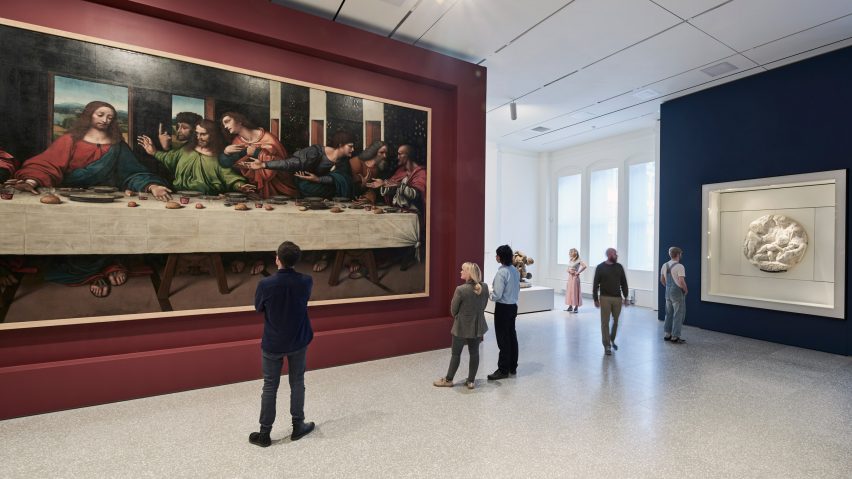 British architect David Chipperfield has upgraded the Royal Academy of Arts in London, with a concrete bridge that connects two buildings, a new auditorium and renovated galleries.
British architect David Chipperfield has upgraded the Royal Academy of Arts in London, with a concrete bridge that connects two buildings, a new auditorium and renovated galleries.
To celebrate the 250th anniversary of the institution, David Chipperfield Architectshas rejuvenated the Royal Academy's (RA) "unloved building" at 6 Burlington Gardens and connected it to the institution's main building, Burlington House.
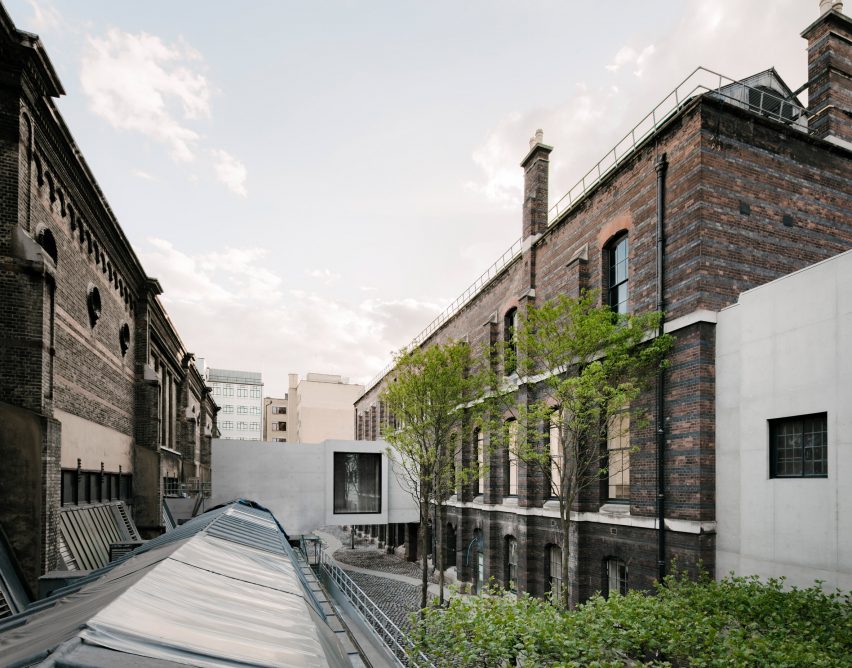 As a result, the RA now has an exhibition space permanently dedicated to architecture – a first for the institution.
As a result, the RA now has an exhibition space permanently dedicated to architecture – a first for the institution.
"The project grappled with two fundamental questions – how do you convincingly connect these two buildings and how do you give purposeful identity to what happens in this building [Burlington Gardens]," David Chipperfield told Dezeen during a tour of the building.
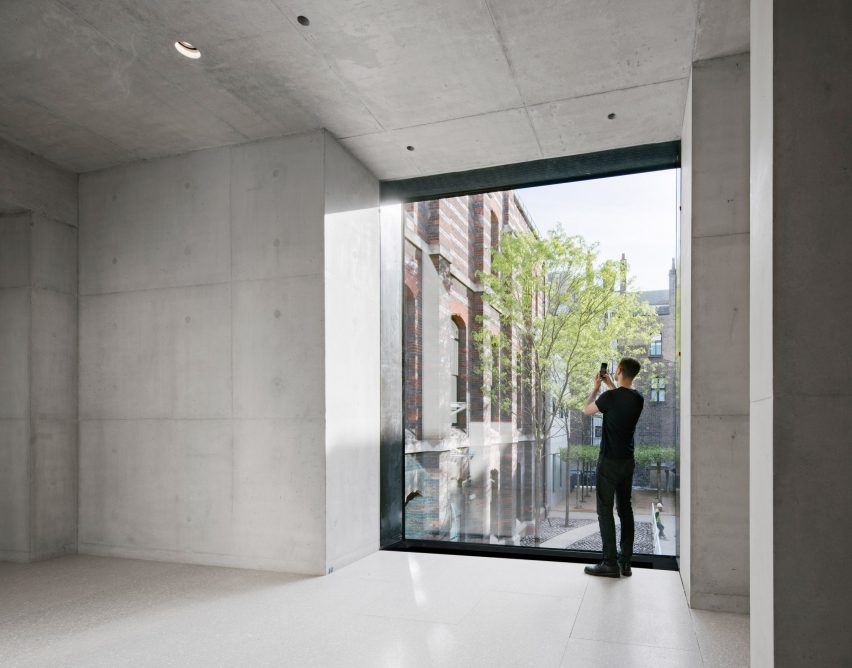
The former home of the Civil Service Commission, the British Academy and the British Museum's Museum of Mankind, the Grade-II listed building was purchased by the RA in 1991.
The renovation has greatly expanded the amount of publicly accessible space for exhibitions in the building. But one of the biggest challenges was how to connect the building both ideologically and physically to the RA's main property, Burlington House. An enclosed concrete bridge was the chosen solution.
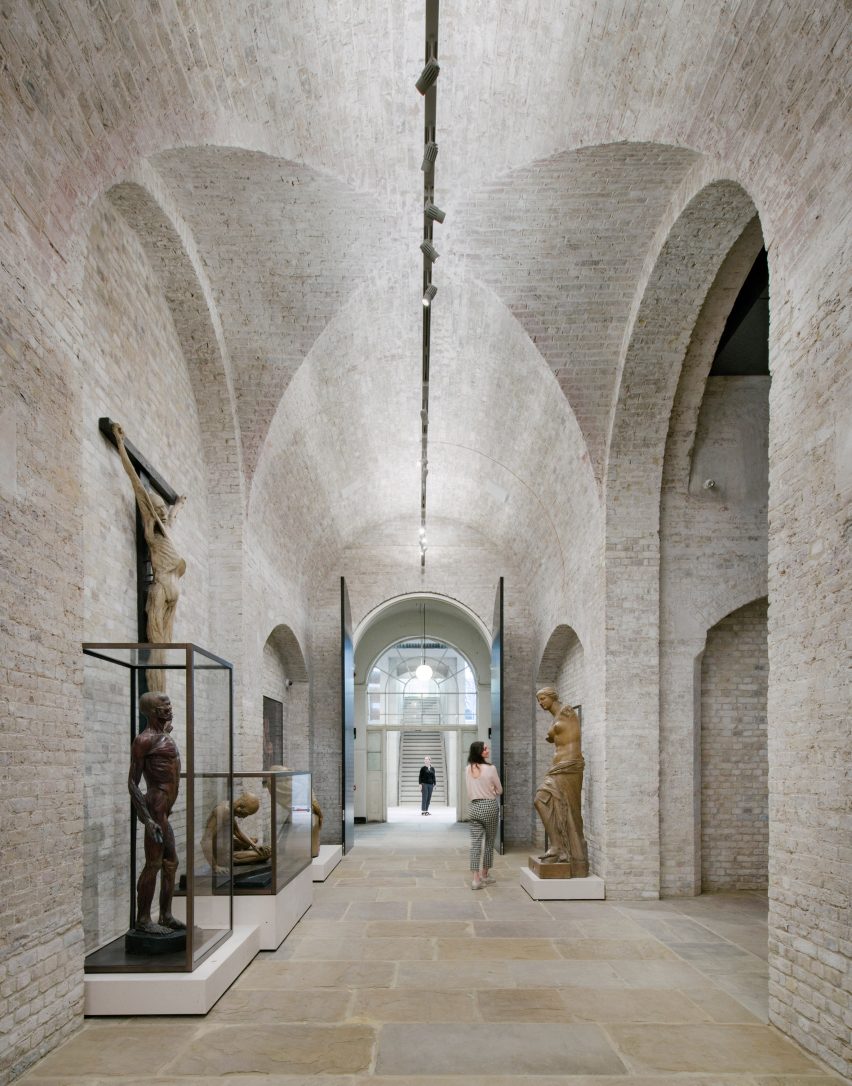 Chipperfield described the renovation as a series of interventions that are designed to bring the best from the historic building and fully connect it to the RA.
Chipperfield described the renovation as a series of interventions that are designed to bring the best from the historic building and fully connect it to the RA.
"It wasn't a project that you had to land big ideas on," he said. "It's a masterplan made of small pieces. There are very diagnostic, punctual interventions as oppposed to a large overall drawing."
"The most punctual intervention, clearly, is connecting the two front doors," he added. "The question is do you go down or do you go up."
To avoid taking the route through gallery spaces, as was proposed in a previous design by Hopkins Architects, Chipperfield chose to link the buildings at ground level.
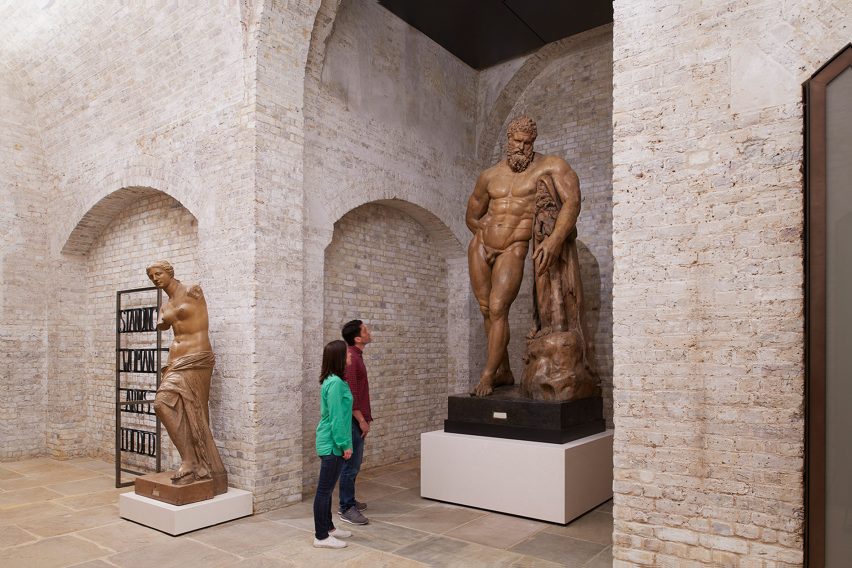 The public route that connects the buildings leads down the stairs at the back of Burlington
The public route that connects the buildings leads down the stairs at the back of Burlington
No comments:
Post a Comment